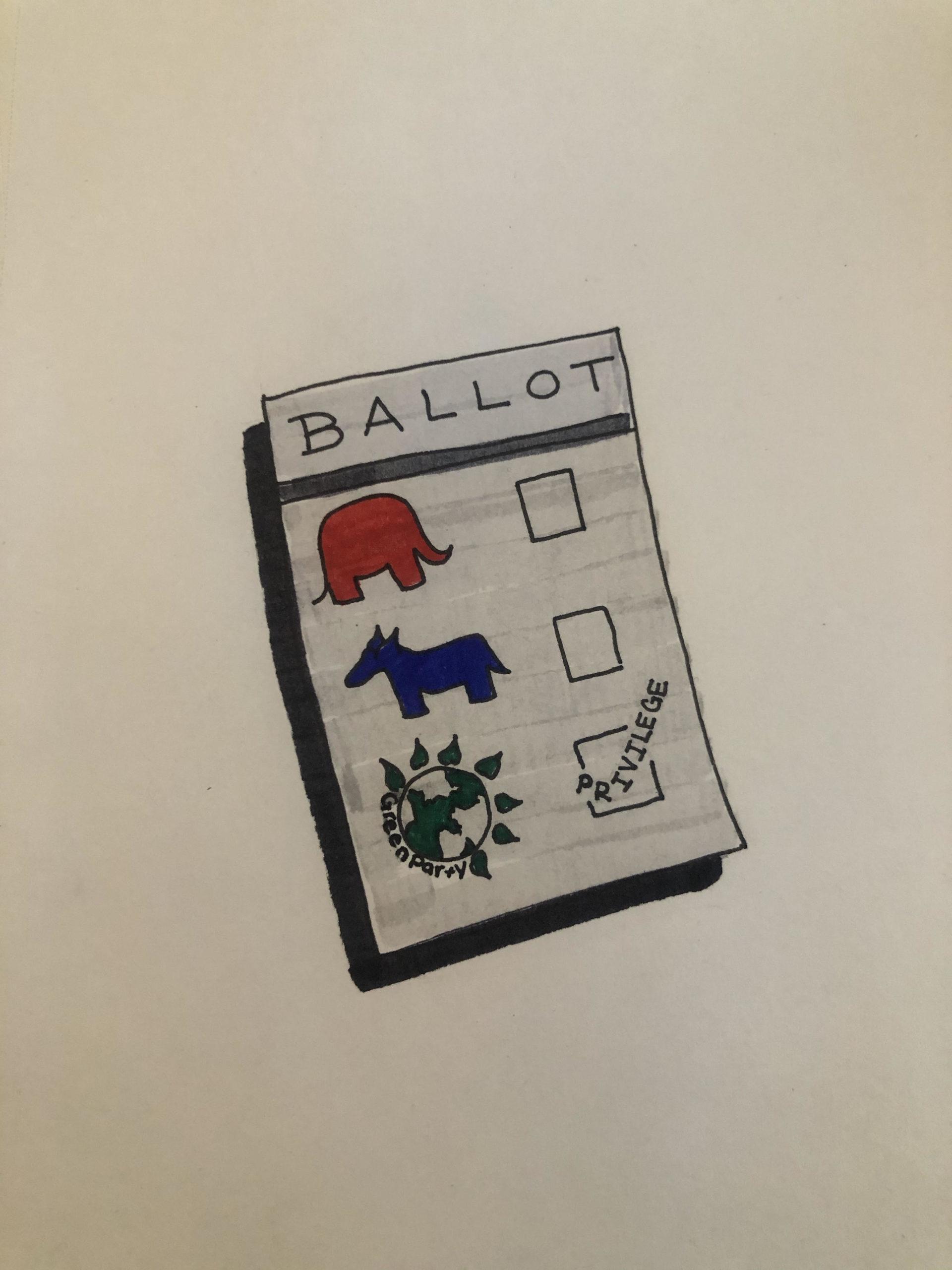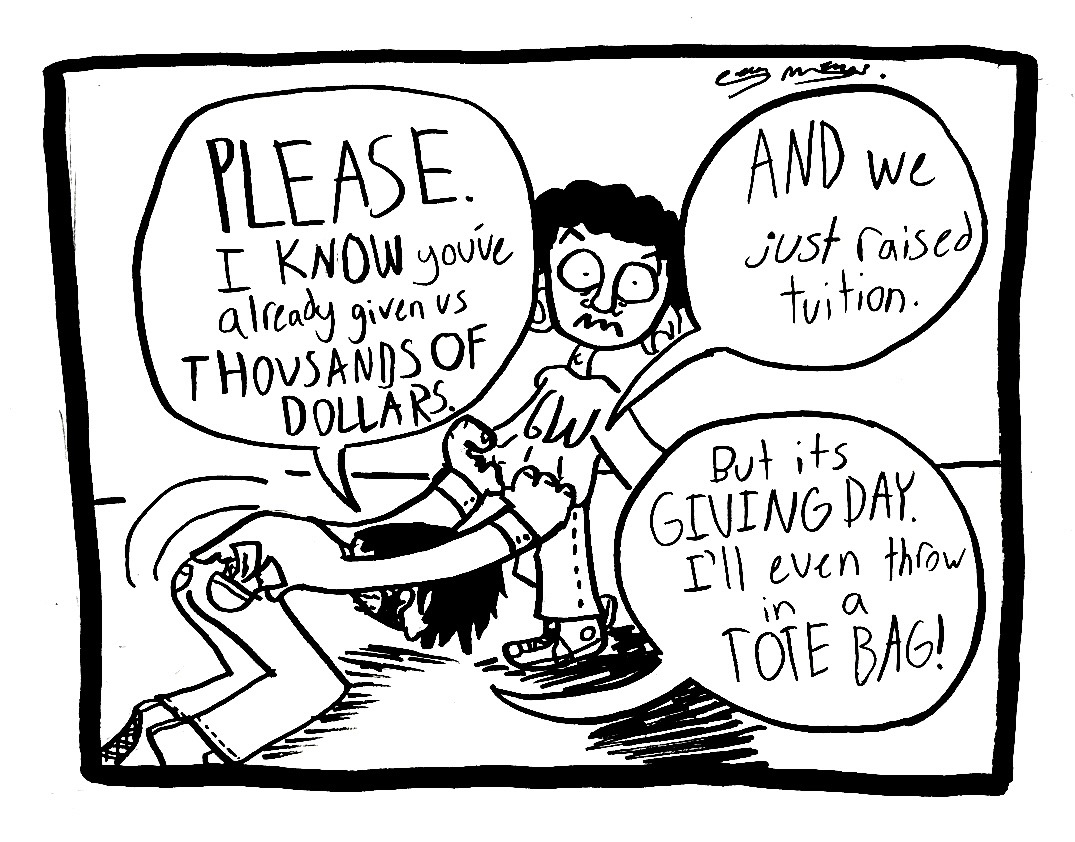In the 2000 presidential election, we could have elected a president who was committed to enacting sweeping environmental protections. Instead, we got two never-ending wars in the Middle East. There are any number of reasons why former President George W. Bush was victorious over former Vice President Al Gore, but without the third-party “Green” candidate Ralph Nader on the ballot, Gore would have won handedly. Bush won the decisive state of Florida by about 500 votes. Post election, a study found that while half of those Nader voters would have sided with Gore in a two-candidate election, only one fifth would have voted for Bush.
In 2016, many voters were frustrated with Democrat Hillary Clinton as an imperfectly progressive candidate. Many Sen. Bernie Sanders, I-Vt., supporters, in particular, refused to vote Democratic after Sanders lost the primary. Many refused to vote for “the lesser of two evils.” As if there were such a thing as the perfect progressive candidate. And the year 2000 repeated itself. President Donald Trump won the all important “Blue Wall” states of Wisconsin, Michigan and Pennsylvania, each by tiny margins that were dwarfed by the votes won by third-party candidates.

Hannah Thacker | Opinions Editor
This election cycle, many complain about Democratic presidential nominee Joe Biden being too moderate for them and are threatening to sit this one out or write in another name. They act as if there are no differences between the candidates’ positions and policies. While this is, of course, objectively false, it’s still a problem. It’s a privilege to vote third party or write in.
We know the next president of the United States will be Biden or Trump. There is no other candidate who has a chance of winning. It will not be Libertarian Jo Jorgensen, Green Party Howie Hawkins or Kanye West. If you feel comfortable enough to vote for someone without a chance of winning, you’re coming from a place of privilege and must cast your ballot for someone who has a chance of taking office.
I am a White woman and live in reasonable economic stability in New York City. My socioeconomic status protects me from retroactive policies and injustices. It is likely that I will always have the ability to exercise my reproductive rights, will never fear for my life in the presence of police or white supremacists, will always be able to love and raise a family with my desired partner, will never be locked away at the southern border, won’t be flooded by another hurricane and will have access to safe and affordable health care. In short, for so many reasons, this election will have few concrete effects on my actual well-being – that is, aside from my mental health. But that is not true for everyone. It isn’t true for those who aren’t of means, who aren’t White, who aren’t citizens and who aren’t living in a blue state.
Certain policy changes, like environmental regulation and tax reform, affect all of us to different degrees. But most policies are almost completely dependent on socioeconomic identity. Criminal justice reform, reproductive freedom, LGBTQ rights, affordable health care, education, voter suppression and immigration are only a fraction of these issues. Casting a Green Party ballot for someone who only cares about the environment means you essentially want a Democrat in office, but we’re still ultimately giving Trump a greater chance at winning. And that would mean the people affected by these crucial policies will feel the horrific repercussions of a second Trump White House, even if you won’t.
Let’s be clear: re-electing Trump will not have the same effect on privileged wealthy White people as it will on everyone else. Voting third party, writing in or not voting at all in this election will effectively give a victory to Trump – a victory wrapped in glitzy gold paper, tied with a spray-tanned orange bow.
It’s kind of like wearing a mask. Because you are healthy and young you think you are more likely to survive a COVID-19 diagnosis. But that’s a privileged position. You could be a carrier, and without a mask on, you could easily spread it to others, others who may not be as young or healthy as you. As Biden says, it’s your patriotic duty to wear a mask, to protect yourself yes, but really to protect others. I would argue it is also your patriotic duty to vote for Biden – not just for yourself but for others who would feel the devastating effects of Trump’s policies for another tenure.
Do not allow your “principles” to overshadow your privilege. Rather, use your privilege to ensure a presidency whose policies protect those who will truly suffer under the repercussions of a second Trump White House.
Zoe Eberstadt-Beattie, a junior majoring in criminal justice and political science, is an opinions writer.
Want to respond to this piece? Submit a letter to the editor.




